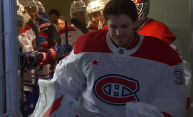The NCAA is fighting what appears to be another losing battle.
Days after appearing toothless in punishing the University of Miami for a series of infractions, the organization found out Friday that a federal judge has dismissed a motion to dismiss an anti-trust lawsuit pertaining to the use of college athletes' names and likenesses. USA TODAY Sports is reporting.
U.S. District Judge Claudia Wilken's ruling allows for the resolution of another key ruling in the case - whether to certify the case as a class-action suit.
The NCAA is the lone remaining defendant against a group of current and former college football and basketball players who are suing to get compensated for the use of their names and likenesses that the NCAA used and profited on during their collegiate careers.
Former UCLA basketball player Ed O'Bannon is one of the lead plaintiffs in the case.
According to USA TODAY Sports, video game manufacturer Electronic Arts (EA Sports) and Collegiate Licensing Co., the nation's leading trademark licensing firm, already have agreed to a settlement with the plaintiffs. That leaves the NCAA as the lone defendant.
If the case becomes a class-action suit, the number of plaintiffs could skyrocket, and damages at stake could be in the billions of dollars, USA TODAY Sports reported.
Michael Hausfeld, one of the lead attorneys for the plaintiffs, said he remained willing to negotiate a settlement with the NCAA and hoped that Friday's ruling made the NCAA see the writing on the wall.
NCAA chief legal counsel Donald Remy said the organization is still hopeful of a favorable ruling without a trial.
USA TODAY Sports added that a key blow to the NCAA was Wilken's indication that the case should not be bound by a 1984 Supreme Court ruling that the NCAA has relied upon to preserve its amateurism system. Also, she has held as valid the plaintiffs' contention "that NCAA rules forbidding schools from offering money to recruits for their labor or for the commercial use of their names and likenesses restrains competition for the athletes and results in lower compensation for the athletes than would otherwise exist in a more competitive market."
"These allegations are sufficient to state a Sherman (Antitrust) Act claim," she wrote.
© Copyright 2026 Sports World News, All rights reserved. Do not reproduce without permission.










